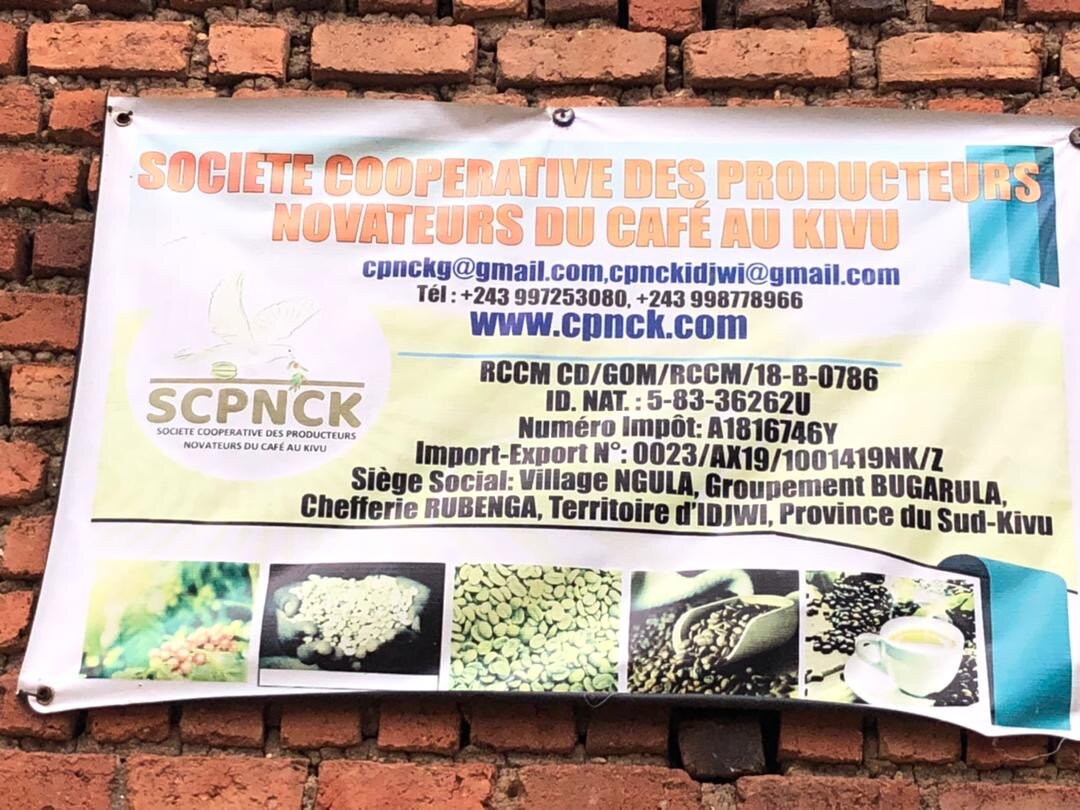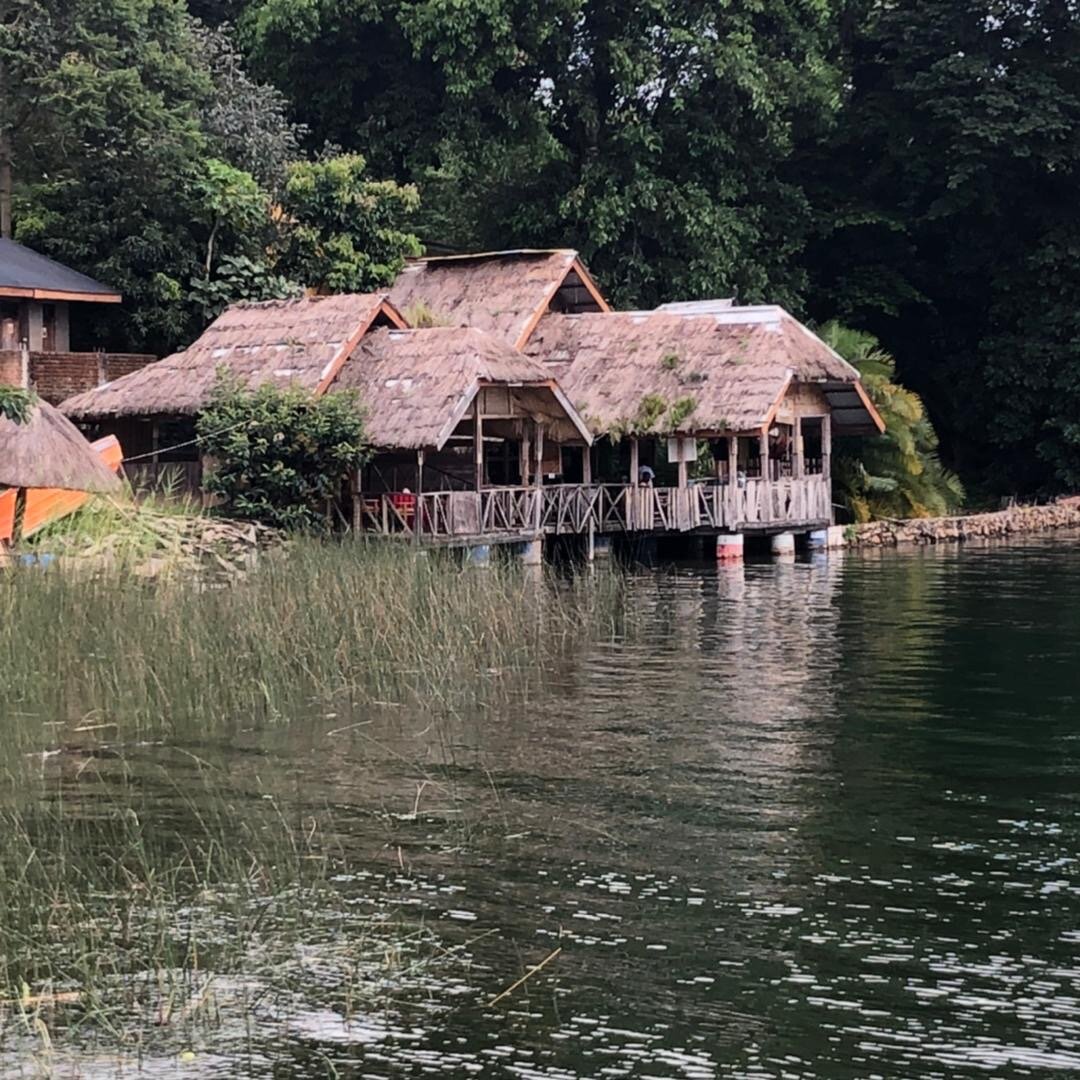Building An Ecosystem
Episode 3
“And so there are those kinds of resistance in the community where people were not really open to these new ideas; new ways of doing in the community.”
Douce Namwezi
Episode three takes us deeper into the intricacies of setting up a business in an uncertain and complex environment. If social entrepreneurs can offer ideas and business solutions for community value, what role should government play? And how can NGOs and other societal actors get involved? Besides the insights from Douce and Washikala, we meet Chance Rwezi, who runs a coffee co-op on the island of Idjwi. While Douce and Washikala need to test their assumptions within their communities, Chance has challenges that lie outside the country. How does he see the balance between local and global economies and community value?
Transcript
In the last episode, we met Washikala Malango and Douce Namwezi, two entrepreneurs who are working in Eastern Congo. And for this episode, we will also be hearing from Chance Rwezi, a coffee grower on Idjwi island.
With local businesses taking on a new role of addressing societal issues in the region. Where does that leave the government and other traditional state actors?
But now what we have seen is that there have been a lot of developments in the market, in the DRC market. We have seen a lot of players coming in. We have seen the government of the DRC being involved seriously, putting in place a lot of programs that are helping companies that are operating in the field.
So we are seeing a lot of advances and improvements that will make it possible for us to reach our goal and our vision. The government has a role to play, you know, it is the government, they're the ones that put in place policies that make it easier for companies like Altech to operate in the DRC.
So if they're not doing their job, it will be difficult for us to operate and to achieve what we want to achieve. We are partners, at least the current government has a goal, if I can call it that, to increase electrification rate from 10% to 30% by 2023.
So, but again, when you talk about electricity in the DRC, in the past, people were talking about Barage d’Inga, the Inga dam.
But at least now they're understanding that, you know, clean energy or decentralized solutions also have a role to play.
And, you know, so that means that they should put in place policies that make sure that companies like Altech can operate easily to achieve their goals. And in turn also help the government to achieve their goals.
Historically, being a private company has been quite difficult in DRC. It's come with a lot of admin and red tape and tax and these kinds of things, but that's easing now.
A new president arrived two years ago and there seems to be a kind of growing recognition that private business or SME business, which is where we are, is part of the future, and is a really crucial part of development.
In the time that we've been operating, there has definitely been a kind of upturn and injection of energy, especially in Goma, but not just Goma in other cities, in the whole country and in Kinshasa, et cetera.
But the main focus to be honest has been on startup.. on the incubation. So, I'm not saying it's easy at all to start a business in Congo. It definitely is not. Culturally people, they tend to spread the risk. So they might have more than one job, for example. If they start their own business, they want to have other things in the spectrum of things that they can do, in case that business goes wrong.
You know, the commitment that you need to really start up a business and make a success of it: that 100% focus that you need is actually quite hard in Congo to commit to.
But they've been supported by incubators and that's good. And to an extent, some of the NGOs are also beginning to support that startup.
Douce explained previously how the position of women in the DRC is changing. We heard how her company Uwezo Africa makes feminine hygiene pads. The brand, by the way, is called Maisha pads. As Douce mentioned before, a lot of her business success depends on the way people see her product, but how do you set up a business selling a product that can't even be mentioned?
What challenges does she encounter?
First of all, because we are talking about something which is intimate for a lot of people like menstruation and periods. It relates to sex, and we are in a community where talking about sex is still a taboo. So, a lot of people were like, oh, you don't have to talk about it loudly, even on the radio, even writing about it.
And so there are those kinds of resistance in the community where people were not really open to these new ideas; new ways of doing in the community.
When we came to sell the pad we are making, there were two kinds of challenges. The first one was that there are a lot of people who are used to the pads that were not reusable that could just use once and then throw in the lake. They are not any way environmentally dealing with the pads that they're using.
So when you ask them to wash their pads and to reuse it again, the part of washing was like, really hard. And they were like, uh uh, we are already used to just to throw them, and we had to multiply the strategies to bring people to understand that this sanitary pad, they are more useful and important in our community because we do have to protect also environment.
The second challenge of selling pads was to the people who are not able to have $5 dollars, for example, to buy a package of pad. And they say, I don't even have food. I can't even pay school fees for my children. How can I have $5 to buy pads?
We couldn't also go less than that, because all the materials we used up to now are bought by ourselves, and we don't have support like people who provide us with sewing machine or things like that. So, anything we are ourselves buying again and again, so we have to sell it.
We have to make a strategy of going to the international NGOs, for example, and ask them to support the production of the pad, so this category of women also can have access to them. And also we give pads for free in the schools. So girls could also stay at school even when they are on their period.
Chance lives on Idjwi island and is the son of coffee farmers. After the Congo wars decimated the production of coffee - specialty coffee that is highly sought after on the international market - he has now used his knowledge and university education to set up and manage the Kivu Cooperative of Coffee Planters and Traders: CPNCK.
CPNCK partnered with La Différence in 2013. They received a loan and have since shipped full-containers of green coffee off the island. They have seen increases in both production and quality scores – with international interest coming from buyers like Starbucks. Armant Chako got on a boat, one morning, to speak with Chance about his business.
The interview is in French and I’ll tell you roughly what he said.
After the civil wars in the early 1990s, coffee production plummeted in the region - and a variety of challenges has made recovery hard. Exports are still only 10% of pre-war levels.
Without an export market, farmers like Chance had been forced to sell their beans to neighbouring countries, which mostly meant a dangerous two-day trip in canoe to Rwanda. But despite the improved market access and demand for the specialty-level coffees, more work is needed before coffee production is a viable industry that can support the community.
So besides his work for the coffee co-op. Chance has continued to set up different businesses with the aim of improving the living conditions for his community. He owns a hotel, and a fish farm. But he encounters many basic problems on a daily basis.
A big challenge however is education, namely how to make the population, and the local and national authorities aware of the work that CPNCK are doing.
There are also a lot of challenges with coffee fraud coming from Rwanda; how to reduce the number of killings of coffee farmers on the lake; the state taxes and credit payments which do not allow the cooperative to advance financially, and general lack of investment needed to scale our operations further.
However, he notes that collaborations like with organisations like La Différence have helped him scale and become more accountable to members.
We have now heard what inspired Washikala, Douce and Chance to get into business and understand more about the specific challenges that they face. But to survive, they must all have had to adapt and iterate.
What are some of the lessons they have learned along the way? Let’s hear from Douce.
We are receiving a lot of calls, a lot of people that need also education and information. And we see even men asking to buy pads for their women or for their daughters. And these are things that a year ago or three years ago, we couldn't even think about it. Working slowly or being really consistent in what we are doing. This is the first lesson learnt for us, because it's bringing change. And the second lesson learned is related to the way women and girls, they are feeling proud of being women and girls. Because the information and communication around menstruation, years ago, it was like trying to bring these people to feel ashamed of having their period, ashamed only because they are having their period. But actually I'm finding more and more people freely talking about menstruation. Freely talking about how women and girls can live with this menstruation.
I think it was also thanks to other actors that are involved like UNICEF and other actors that are also now finding that it's important to talk about this topic.
Having the framework, a good framework is great, and we can lift our eyes up every so often and make sure we're going in the right direction. But really we should make sure that the foundations on which we're building are really well-built.
This podcast series is a collaboration between Tessa Wernink and global design agency Impossible. Interviews with the entrepreneurs were organized, conducted, and translated by Armant Chako. Production, scripting and narration by Tessa Wernink. Sound design and editing by James Powell. All music used in this podcast is listed and credited on whatifwegetitright.com. Design an artwork by BeAPeach and Impossible. Special thanks to La Difference for all their help and support in putting this podcast together.
Music Credits
Lucifer - Docteur Nico & l’Africain Fiesta // Masanga - Jean Bosco Mwenda // Mama Na Mwana - Jean Bosco Mwenda // Nasalin Eloko Te - Docteur Nico & l’Africain Fiesta



